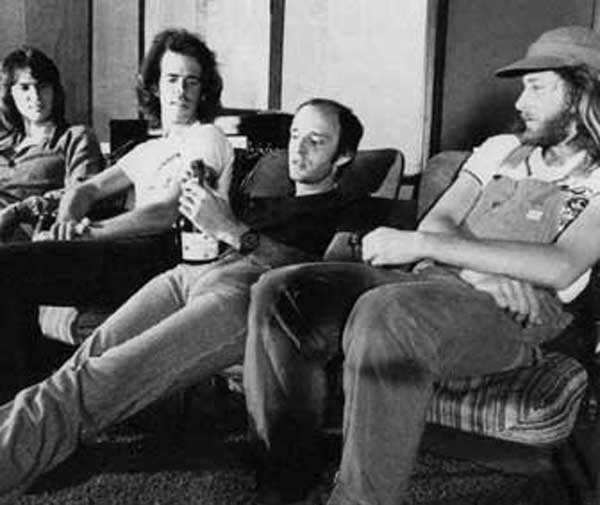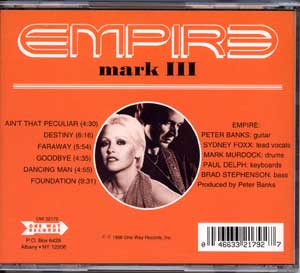Tribute
|
Dwight_Tindle (1950-2006)
(1950-2006) |
The recent,
untimely passing of my good friend Dwight Tindle has rekindled many
memories and inspired some of the music reviews that I've added to my
website. Here I want to acknowledge the major contributions that Dwight
made to my life, personally and professionally. This is a small part of
the story.
I met
Dwight when we were teenagers, I was a composer at the Cincinnati Conservatory of
Music, he had a great love of music (was a fine musician) and was
pursuing the possibility of getting into the business of FM radio. I shared an apartment with him
briefly in Cincinnati. He,
very generously, funded the creation of my personal electronic music studio with a
huge Buchla, Moog synthesizer system and recording equipment.
Dwight held
an almost legendary status as "the kid" who started KDKB, an
innovative rock radio
station in Phoenix Arizona, at the age of 21. That station was the first of many
successes in Dwight's creative life.
In 1978, he contacted me to see if I would be interested in taking a keyboard position in a new rock band (Peter Bank's
Empire)
that he was managing. I had just accepted a teaching position at
the Conservatory and decided not to take the offer; instead I recommended
Paul Delph (an incredible musician, and my brother-in-law),
who was just about to finish his degree at the Conservatory; a few weeks
late Paul flew to California and became a very successful
musician.
|
Don Buchla
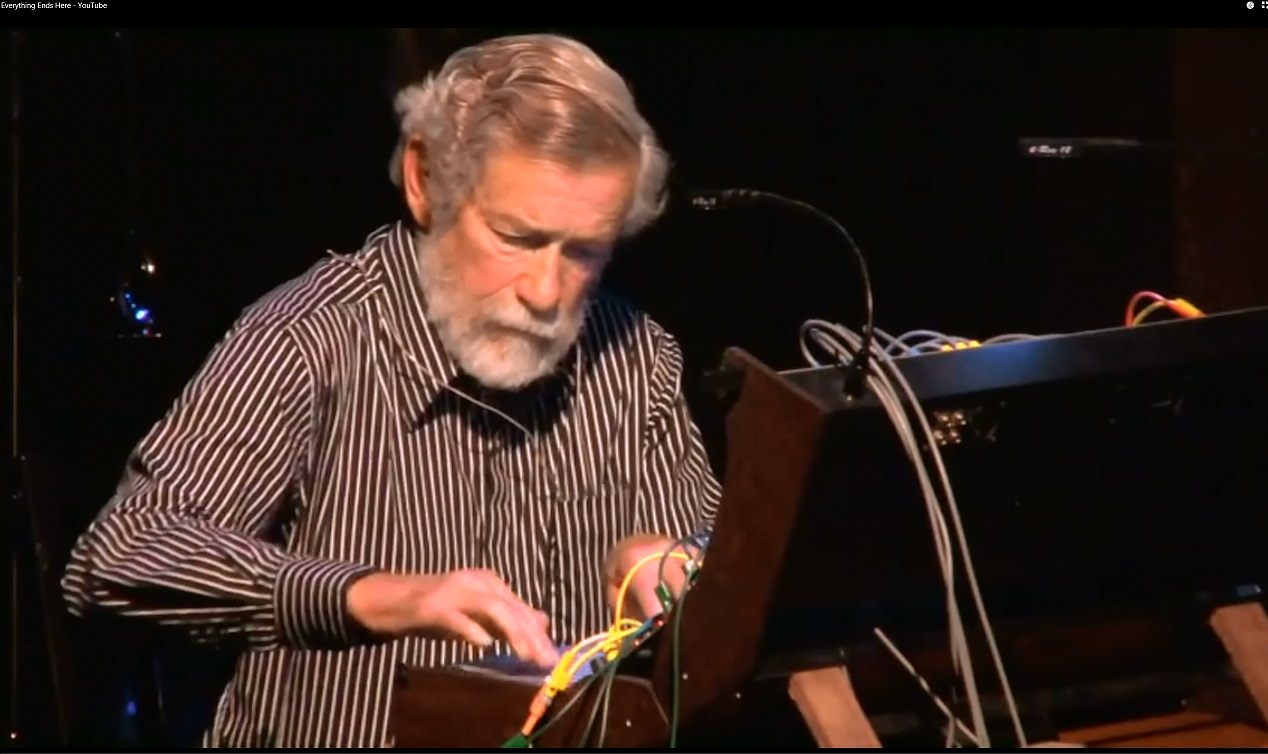
(1937-2016) |
Dedicated to my friend, musician, genius designer of my
electronic music system. The Electric Music Box. Passed from this life in
September 2016.
Thanks for this adventure my friend.
Loving thanks to Nannick for hosting such memories.
|
About Dwight Tindle
Dwight was one of the great pioneers in contemporary FM radio. In 1971 he
founded KDKB radio, in Phoenix, Arizona. The station was unique, with a
free-form format, that was creative, improvised yet with an
underlying thread of continuity. Dwight had a regular shift on-the-air and
handled much of the other aspects of the business.
KDKB became Phoenix’s #1 radio station, and in 1976 received
broadcasting’s highest honorm a Peabody Award. KDKB was the first of many
stations owned by Dwight, who also pursed other music related businesses for the rest
of his life. Dwight is listed in
Who's Who In America.
A few months ago, Dwight and I reconnected after being out of touch for many
years. He had cancer and was quite ill. We shared many memories and caught up on
each other's lives; in the conversation he asked about Paul and I send him my
copy of Paul's CD "A God That Can Dance" and I included a brief listening guide
to share with Dwight; those notes became the review that I've published on this
web site (Read a review of Paul's
CD "A God That Can Dance").
In re-listening
to Paul's CD, I was reminded about just how wonderful and accomplished the music was, and that inspired me
to publish the review and to send it out with the CD to some of my friends. In our last
conversation, Dwight
expressed a sense of spiritual peace (after a life of incredible ups and downs).
He greatly enjoyed Paul's CD, and expressed happiness that Paul and I had
benefited so well from our friendship with him. Dwight died a few weeks after our last
conversation.
============ Dwight's connection with Paul Delph ===
In 1978, Paul Delph joined the band Empire, here is some history on
that group (mostly provided by Dwight Tindle)
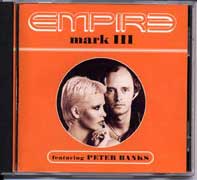
Empire
(history of the band 1978)
Empire,
or at least this particular incarnation of Empire, was conceived and
born under the most auspicious circumstances on a Sunday afternoon in
the Spring of 1978. It was one of those days that is etched on my memory
in such vivid detail that I can even remember what each of us had for
lunch some seventeen years later.
Peter
Banks and Sydney Foxx had invited me to the Polo Lounge of The Beverly
Hills Hotel, that vaunted room where, if legend is to be believed, every
movie, script, play, group, album or other entertainment project had
it's genesis. The meeting was arranged by Mark Murdock who was a mutual
acquaintance of ours and who ultimately became the drummer of Empire.
Peter
was interested in starting a new band featuring Sydney on vocals with
an eye toward recording and touring. The process would be an arduous
one from assembling and rehearsing the musicians, writing the material
and recording demo tapes to blocking and staging a live performance
and interfacing with a record label to produce an album. Peter had some
strong song ideas which we discussed and Sydney was an accomplished
singer, songwriter and lyricist, and so it was that the nucleus of the
group, under my management, was formed. We all shared a bottle of over-priced
champagne and Empire was born.
The
next logical step was to put the band together, initially looking no
further than Mark Murdock who had arranged our meeting and who was an
accomplished jazz drummer with a group out of Phoenix, Arizona called
Seacloud. Through a contact of mine (David McClanahan) we became aware of Paul Delph, a
graduate of the University of Cincinnati, College Conservatory of Music
with a double degree in piano and composition, and sent him a plane
ticket to L.A. Brad Stephenson chimed in on bass from a band called
Ethos Ardour which had previously recorded two albums for Capitol Records.
We
leased rehearsal space at a place called Mars Rehearsal Studio just
off of Melrose Avenue in
Hollywood and for about a year the task of learning charts and evolving
a sound was undertaken. Empire was a band in the truest sense of the
word and Peter very much wanted it that way. At the end of the 1970's
most artists who had attained Peter's stature were developing solo careers
and hiring side men as replaceable parts, not willing to abide the frequent
personality clashes that are inherent in being "a band." Empire,
on the other hand, was a homogenous group which provided Peter with
the Jazz-Classical-English Rock Fusion sound he was striving for.
Sydney
spent a good deal of time in dancing and voice classes honing her skills
during this time while Peter rehearsed the band at Mars. When song ideas
were eventually put down on tape they were delivered to Sydney who conceived
the melodies and lyrics. This process culminated in the production of
the recordings which are presented here.
Originally
conceived as demo recordings, the music on the enclosed CD represents
a snapshot of a point along an evolutionary process which should have
lead to the production of a Record Album. Empire did not get a record
deal, however. The major labels didn't have an interest in what Empire
was doing at the time and the band simply split up.
The
tapes had been sitting on a shelf in my office for the last sixteen
years when, in a telephone conversation with Terry Wachsmuth at One
Way Records on an entirely different matter, the subject of Peter Banks
came up and he said that there was an interest in any tapes of a band
Peter had called Empire. I mentioned that I had those tapes on my shelf
and immediately sent them off to Terry who decided to release the material.
Raw
and unpolished, these recordings exhibit an Empire that was headed toward
an extremely challenging place musically. There are many brilliant passages
which showcase the guitar virtuosity of Peter Banks and for that reason
alone, these recordings have merit.
Music
is as much a Science as an Art and Empire, like all bands, was an experiment
in chemistry. While not exactly a cure for cancer, Empire didn't blow
up the lab either and these recordings are what remain of much effort
and love on the part of a group of highly talented and accomplished
individuals.
EMPIRE Band Members 1978
PETER BANKS: Guitar
Englishman
Peter Banks co-founded YES in 1968 with Jon Anderson, Chris Squire,
Tony
Kaye, and Bill Bruford, providing a major contribution to the band's
multi-layered sound with his intricate guitar work until his
departure from the group in 1971. In 1974,
recordd his critically acclaimed solo album titled TWO
SIDES OF PETER BANKS.
SYDNEY
FOXX (actress, singer, dancer, writer) wrote lyrics, co-wrote melodies
and performed with EMPIRE
PAUL
DELPH: keyboards
Delph
is a graduate of the University of Cincinnati, College Conservatory
of Music, where he earned a double degree in piano and composition,
providing him with an enviable musical base to work from. His diverse
studies have included eighteen years of classical piano, eight of trumpet,
seven of electronic, five of jazz piano and two years studying the Indian
music tradition. Prior to joining EMPIRE, he played with a number of
Big Band Jazz groups, jazz-rock trios and even a trio exploring classical
Indian music. he has done much work in the electronic field, perfecting
a variety of sounds from his keyboards. Delph has performed in a number
of rock bands and has given solo concerts. In EMPIRE, his keyboard wizardry
plays off Bank's searing guitar work building a highly textured sound.
BRAD
STEPHENSON: Bassist and backing vocals
MARK MURDOCK: drums
Here's a picture of Paul (left most) with the band,
Empire 1978. Also the back cover of the CD.
|
Empire did not continue as a group. Paul moved on to do much more.
Composing, recording on hundreds of recording. Paul performed and produced Jimmie Spheeris' last album, recorded in
1984, shortly before Jimmie was killed in a motorcycle accident.
|
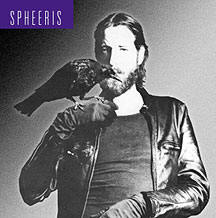
|
|
except from the page on my music and a performance |
|
|
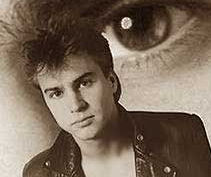 Paul
Delph was also playing in this concert. A great musician (and a
beautiful soul), went on to great success in LA as a studio musician. Paul
Delph was also playing in this concert. A great musician (and a
beautiful soul), went on to great success in LA as a studio musician.
Click Paul's photo to visit his memorial site.
Paul was my brother-in-law; We traveled to India together to study
meditation and music, we played several concerts together.
Shortly after that (1978) I was offered a keyboard position with a band, instead I recommended Paul
.. he flew off the LA and lived a great life.
|
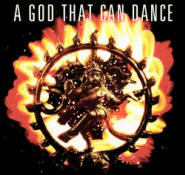
Paul's CD - "A God That Can Dance"
Great, great music. Wide-ranging...
Hard rock, beautiful ballads, New Age, Happy, Sad, Joyous, Playful,
Deep. Wonderful.
Click the CD to hear or purchase his music.
read a review of
this CD
|
[david4/footer.htm]
 (1950-2006)
(1950-2006)

